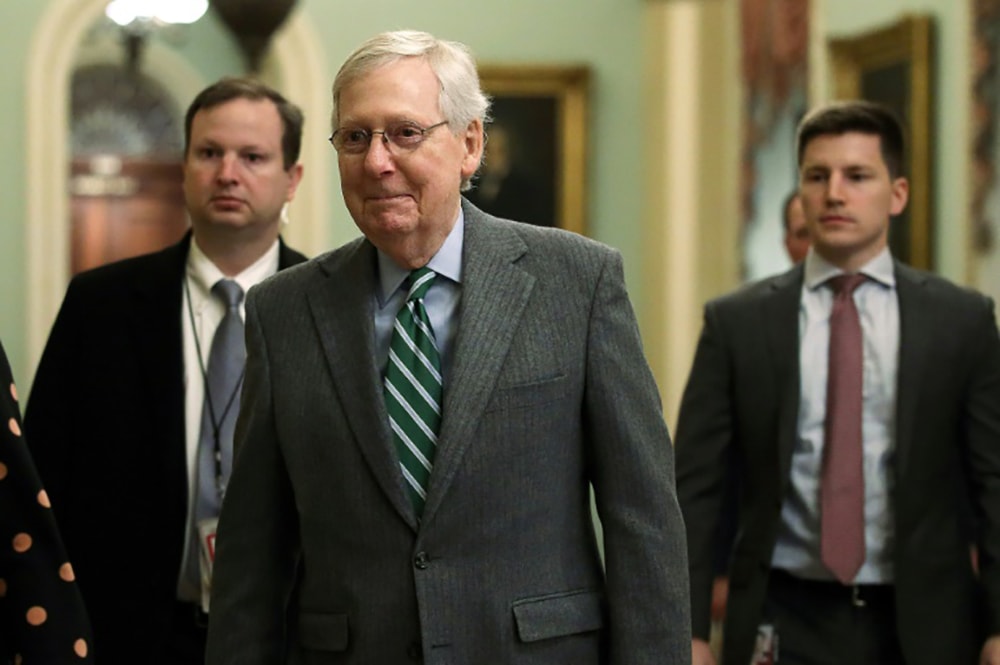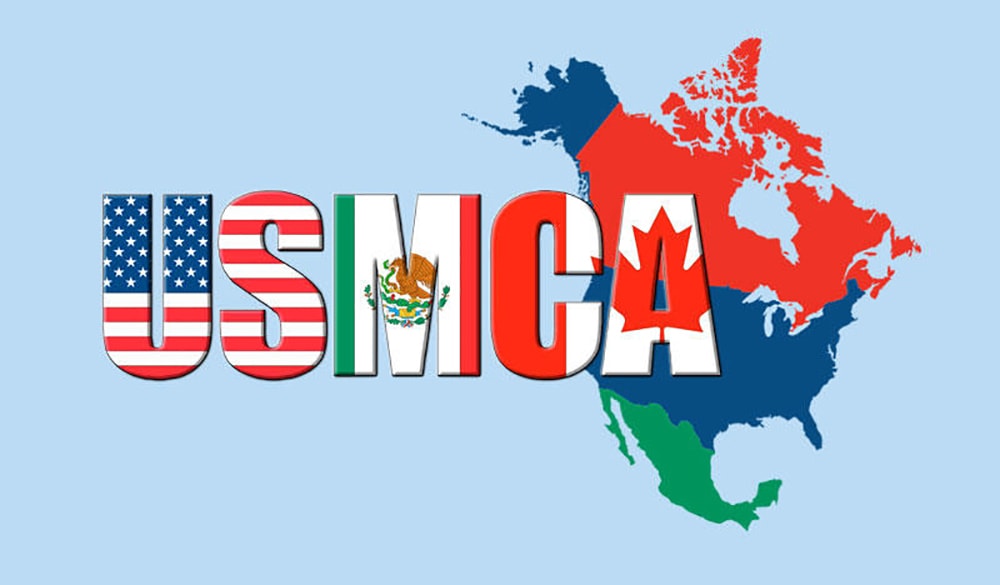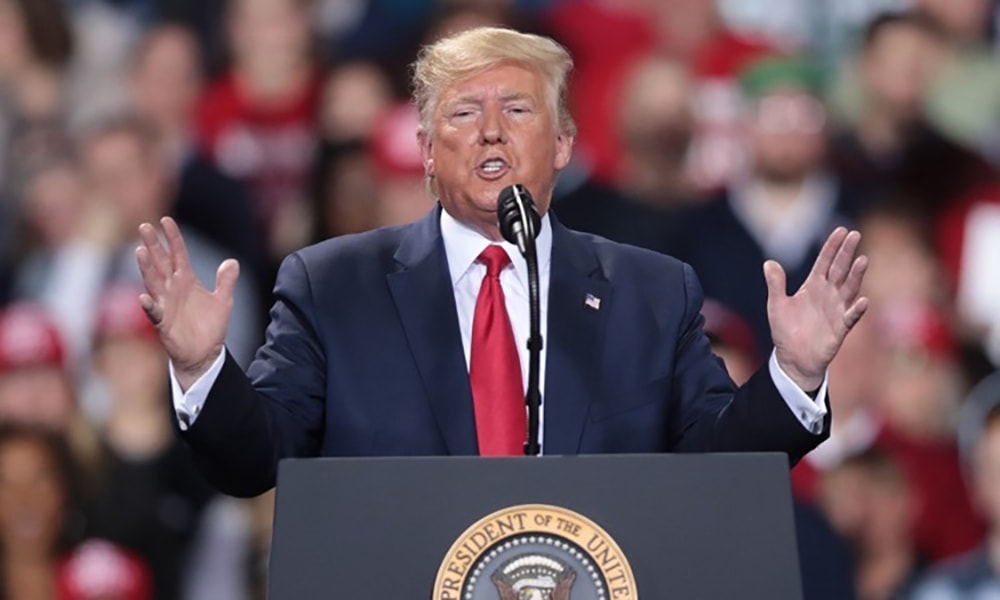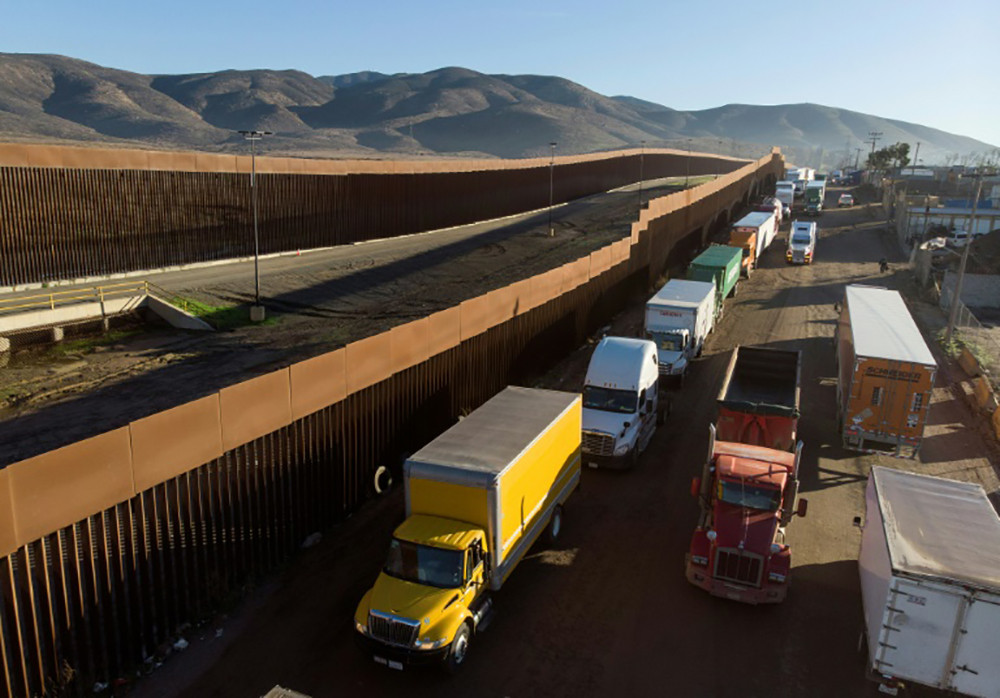President Trump's timely victory
(Baonghean) - The US Senate has officially approved the revised North American trade agreement, with an overwhelming majority in a vote that is considered a rare moment of bipartisan cooperation and consensus. Thus, another victory marking the implementation of an important election promise has officially belonged to Donald Trump, in the context of the legislature urgently conducting the President's impeachment trial.
One victory after another
The United States-Mexico-Canada Agreement, or USMCA, was approved by the US Senate with 89 votes in favor and 10 against. The trade pact, signed by President Trump in November 2018, also received a similar “ticket” of approval from the House of Representatives vote last month.
The measure is “another trade victory for American workers,” replacing the “job-killing, massively failed NAFTA,” according to a statement from the White House press secretary.
The statement asserted: “USMCA, successfully negotiated by the President more than a year ago, rebalances trade between the three countries and will lead to significant economic and job growth in the United States.”
 |
| US Senate Majority Leader Mitch McConnell arrives at Capitol Hill on January 16. Getty Images |
Individual US senators have also praised the benefits of the new deal for their constituents, with Senate Majority Leader Mitch McConnell calling it “a big win for Kentucky and all 50 states.” Speaking on the Senate floor on January 15, he added that the deal is “a big win for the country. A big win for the Trump administration.”
President Trump can now claim to have fulfilled his campaign pledge to be tough on trade.
The USMCA is intended to replace the North American Free Trade Agreement, negotiated by President George H.W. Bush in the 1990s and pushed through Congress by President Bill Clinton.
With a renegotiated trade pact with Mexico and Canada and the signing on January 15 of a preliminary trade agreement with China that aims to end a long and fraught trade war, Mr. Trump can now claim to have fulfilled his campaign pledge to be tough on trade and eliminate “bad deals” made by his predecessors.
 |
| The US-Mexico-Canada Agreement is seen as a victory for President Trump. |
Senator Richard Shelby tweeted that the deal would boost trade across the state and benefit “farmers, manufacturers and businesses.” Senator Shelley Moore Capito said the deal “gives a 21st century update to our trade policies with Mexico and Canada.”
Meanwhile, Trump's re-election campaign also took advantage of the situation to attack his rival, Senator Bernie Sanders, one of 10 lawmakers who voted against USMCA.
“Socialist Bernie Sanders has proudly voted against new jobs and higher wages for American workers,” the Trump campaign wrote in an email to supporters on January 16. “Sanders is willing to sacrifice blue-collar jobs and rising wages, even as he enjoys flying fossil fuel-burning private jets almost daily.”
 |
| President Trump at a campaign rally in Michigan on December 18. Photo: AFP |
New bottle, new wine?
Many economists argue that NAFTA has been a major boost to North American economies, as it has removed trade barriers, reduced tariffs, and increased foreign investment, especially in Mexico. But critics, including Trump and many Republicans, say NAFTA has pushed American jobs across the border. The US president has frequently said that NAFTA is “probably the worst trade deal ever.”
In fact, NAFTA did not cause large job losses nor did it create large economic benefits.
A 2017 report by the nonpartisan Congressional Research Service concluded that the impact of NAFTA over the past quarter-century is difficult to isolate.
“A major challenge in evaluating NAFTA is separating the effects of the agreement from other factors,” the report said. “US trade with Mexico and Canada was growing before NAFTA and likely would have continued without the agreement. In fact, NAFTA did not cause the large job losses that critics feared, nor did it generate the large economic gains that supporters predicted.”
 |
| Leaders of Mexico, the US and Canada at the USMCA signing ceremony in November 2018 in Argentina. Photo: AP |
The new deal does offer some modest benefits over its predecessor. According to a 2019 report by the U.S. International Trade Commission (ITC), the USMCA would boost gross domestic product (GDP) by 0.35% after inflation, or $68.2 billion, and create 175,700 new jobs over six years, fewer than the average U.S. economy creates in a month.
According to the report, US exports to Canada and Mexico will increase by $19.1 billion (5.9%) and 14.2 billion (6.7%), respectively. US imports from Canada and Mexico will increase by $19.1 billion (4.8%) and $12.4 billion (3.8%), respectively.
One key point is that it will increase the percentage of a vehicle’s parts that must be made in North America to avoid tariffs from 62.5% under the previous NAFTA to 75% under the USMCA. The new pact will also require that most of those parts be made by workers earning at least $16 an hour—a provision meant to counter cheap Mexican labor. The changes will result in a slight increase in retail vehicle prices, according to the ITC.
The White House also negotiated a reduction in Canadian tariffs on U.S. dairy products, including milk powder and infant formula. But Canada has already accomplished one of its top priorities: retaining Chapter 19, a dispute resolution mechanism that allows any country to challenge another country’s trade restrictions to a neutral jurisdiction.
 |
| Trucks line up to travel from Tijuana, Mexico to the US in December 2019. Photo: AFP |
The new deal also includes provisions to protect the ozone layer, marine environments, and air quality, and establish a fisheries management system to prevent overfishing in North American waters. But that hasn’t been enough to satisfy environmental groups, who in a statement last month urged members to reject the USMCA.
They assert that the new deal falls short and “will encourage the offshoring of pollution and jobs, create opportunities for notorious polluters, and perpetuate Trump’s pollution legacy for years. Whether the deal fails to address, recognize, and address the climate crisis, and may even contribute to making it worse, is a question for environmentalists to answer in time.

